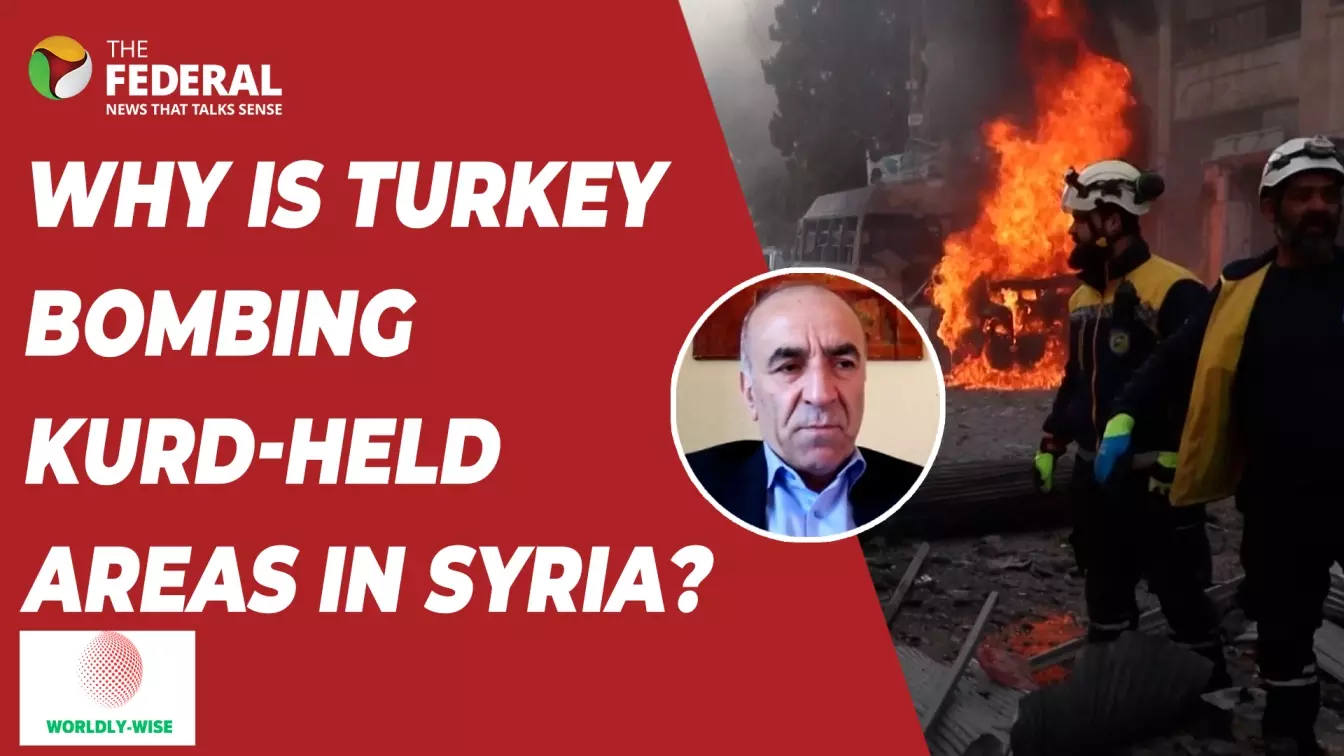
Exclusive | Fayik Yagizay on PKK’s end to armed struggle: What next for Turkish Kurds?
The disbandment of PKK marks a significant shift in Kurdish-Turkish relations and raises questions about the future of Kurdish struggle for rights and autonomy

In a historic move, Abdullah Öcalan, leader of the Kurdistan Workers’ Party (PKK), has called for the group’s disbandment and an end to its armed struggle against Turkey. This decision, announced on February 27, marks a significant shift in Kurdish-Turkish relations and raises questions about the future of the Kurdish struggle for rights and autonomy.
To discuss the implications of this decision, The Federal’s Managing Editor KS Dakshina Murthy spoke with Fayik Yagizay, the Democratic Party's (DEM Party) representative to the European Institutions in Strasbourg. In this interview, Yagizay explores the broader impact of Öcalan’s call, Turkey’s ongoing military actions, and the status of the Kurdish people across the Middle East.
What Öcalan’s call means for Turkey and the Kurds
Yagizay emphasized that Öcalan’s decision to end the PKK’s armed resistance is a game-changer. “The PKK’s foundation and armed struggle not only shaped Kurdish-Turkish relations but had a major impact on the entire Middle East,” he said. The dissolution of the PKK is expected to alter the dynamics of the Kurdish issue in Turkey and the broader region.
For decades, the PKK’s armed resistance provided the Turkish government with a justification to crack down on Kurdish political movements, often branding them as terrorist-linked organizations. With the PKK out of the picture, Yagizay believes this argument will lose its validity, opening doors for more democratic engagement.
“We now have the conditions to obtain our rights through peaceful means,” Yagizay stated. He pointed out that Kurds in Turkey have made significant political gains, with DEM Party holding major municipalities and parliamentary representation. If Turkey truly embraces democracy, Yagizay argues, the Kurds will no longer need armed resistance to assert their identity and rights.
Also read: Syria’s post-civil war future: New challenges under Ahmad al-Shara
Why is Turkey still attacking Kurdish areas?
Despite the PKK’s move towards disbandment, Turkey has continued its military operations against Kurdish forces in Syria and Iraq. Turkish airstrikes have targeted Kurdish enclaves, raising questions about the government’s true intentions.
“This is the big question we ask every day,” Yagizay said. “Why is Turkey still bombing Kurdish areas if the armed struggle is over?” He suggested that there may be internal divisions within the Turkish state, with some factions favouring a peaceful resolution while others benefit politically from maintaining a state of war.
Turkey has long viewed Kurdish autonomy movements, particularly in northern Syria’s Rojava region, as a security threat. Kurdish forces played a crucial role in defeating ISIS, earning support from the United States and other Western allies. However, Turkey continues to target Kurdish-held regions, fearing that a strong Kurdish presence in Syria could inspire similar demands within Turkey.
Status of Kurds in Iraq, Syria, and Iran
The Kurdish struggle is not confined to Turkey. Kurds are spread across Iraq, Syria, and Iran, each facing unique challenges. Yagizay highlighted the stark differences in their situations.
Iraq: Iraqi Kurdistan enjoys the highest degree of autonomy among Kurdish regions. Following the US intervention in Iraq, the Kurdish region established a federal system with its own government and parliament. “Compared to other parts of Kurdistan, Iraqi Kurds have the most stability and rights,” Yagizay noted.
Syria: In northern Syria, the Kurdish-led Syrian Democratic Forces (SDF) have established a self-administration system. While Kurds have gained a degree of autonomy, they remain under constant threat from Turkish military actions and extremist groups. “We are more powerful than the current government in Damascus in terms of military and administrative experience,” Yagizay claimed, adding that the Kurds are open to dialogue with Syria’s government for a decentralized system.
Iran: The situation for Kurds in Iran remains dire. “There are about 12 million Kurds in Iran, but they are denied their basic rights,” Yagizay said. He pointed to the execution of Kurdish activists and the repression of protests, such as those following the killing of Jina Mahsa Amini. “The conditions in Iranian Kurdistan are worse than anywhere else,” he concluded.
Also read: Rojava, Zin: How two novels in different languages depict Kurdish liberation struggle
Role of the Kurdish diaspora and international support
As a representative in European institutions, Yagizay works to bring global attention to the Kurdish cause. He emphasized that democracy is the key to securing Kurdish rights within existing national borders. “If Turkey, Iran, Syria, and Iraq democratize, the Kurds can achieve their rights peacefully,” he said.
Yagizay also sees India as a potential ally. “The Kurdish language is part of the Indo-European family, and we share historical and cultural ties with India,” he said. With India emerging as a global power, he believes stronger ties between the Kurds and India could help advance the Kurdish cause on the international stage.
What’s next for the Kurdish struggle?
With the PKK moving towards dissolution, a new chapter is beginning for the Kurdish movement. However, the challenges remain immense. Turkish airstrikes continue, Kurdish autonomy in Syria faces opposition, and repression persists in Iran.
Yagizay remains hopeful that the Kurdish struggle can transition into a peaceful, political fight for rights and recognition. The coming months will reveal whether Turkey and other regional powers are willing to embrace a diplomatic resolution or if conflict will continue despite the PKK’s decision.
The future of the Kurds is at a crossroads—will peace prevail, or will history repeat itself?
The content above has been generated using a fine-tuned AI model. To ensure accuracy, quality, and editorial integrity, we employ a Human-In-The-Loop (HITL) process. While AI assists in creating the initial draft, our experienced editorial team carefully reviews, edits, and refines the content before publication. At The Federal, we combine the efficiency of AI with the expertise of human editors to deliver reliable and insightful journalism.

